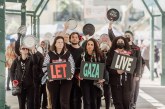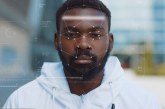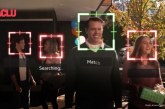
There is little doubt that one of the most controversial topics that I have covered on the Vanguard in its six and a half years of existence is the topic of racism.
This past summer an incident, when a noose was hung from the goalposts of the football stadium at Davis High, triggered a lengthy community debate over what should be done and how much attention we should pay to such an incident.
There is a legitimate debate here, on the one hand with those who believe that the perpetrators of such incidents are largely attention-seekers, who crave attention and relish in creating polarization and fear and anger in the community. On the other hand, the law enforcement professionals and researchers believe that such actions are best handled by strong community condemnation, and that allowing the conduct to go without strong community criticism feeds into a destructive cycle that can have worse impacts down the line.
From my standpoint, Davis has long been a community in denial about its dark underbelly. It is an affluent, well-educated, largely homogenous community that has prided itself on progressiveness and tolerance. 81% of its electorate voted for President Barack Obama in 2012 – a number only slightly lower than the nearly 85% who supported him in 2008.
And yet, the history of this community has had periodic incidents, whether they be DHS students in the 1970s wearing KKK masks to basketball games, hate incidents, or other potential acts of racism over the last 30 to 40 years.
For the first ten years of my residency in this community, I would have been one who would not have observed or grasped the potential problems. But in the last six or seven years, I have seen more than most.
Six years ago a campus climate study found that a large number of African-American students had experienced acts that could be interpreted as racist in the city of Davis, primarily in their dealings with police, but also in their interactions with local business.
A Human Relations Commission study conducted a few years ago showed a similar problem with minorities, who felt that they were treated differently in the city of Davis due to their race – particularly in their interactions with the business community.
Anecdotally, I have had African-American students tell me that they feel uncomfortable walking through the city of Davis due to their race. That they have had worse interactions with the police in Davis than in their own communities. And most African-Americans have a personal story about an encounter with Davis police.
Not only that, but we have one of the larger achievement gaps in this community’s schools, showing a large gap in the test scores of whites and Asians on the one hand, and African-Americans and Latinos on the other hand.
This is also a changing community. Twenty years ago, just before I moved here, the schools had a white student population of 75%; that number has declined to just 57% today, meaning that 43% of students are minorities.
Davis is hardly the deep south in terms of race issues, but there are issues that need to be addressed.
Following the noose incident, the city’s HRC worked on putting together a community event. The event followed what the HRC did last January, where it had a panel of five African-American citizens talking about the issue of race in Davis.
Today, at 1 pm at the Community Chambers will be an event entitled, “Breaking the Silence of Racism.”
Community members are invited to share their recent experiences and thoughts regarding racist incidents in the Davis community and ask questions of a panel comprised of local leaders and officials.
The idea is that the panelists will be there to listen, not to speak, and to address concerns and questions from the community.
Sandy Holman, founder of The Culture C.O.O.P., will moderate the panel, which will include the following individuals:
- Rochelle Swanson, City Council Member and Local Business Owner
- Jonathan Raven, Yolo County District Attorney’s Office
- Rev. Kristin Stoneking, Campus Minister of CA House
- Rahim Reed, UC Davis Associate Executive Vice Chancellor for Campus Community Relations
- Captain Darren Pytel, Davis Police Department
Also the school district will now be represented, with Pam Mari addressing issues on its behalf.
From the city’s press release, the commission hopes that “Breaking the Silence of Racism” will:
- Allow participants to share their stories
- Allow participants to discuss whether existing public policies are sufficient to address indifference, discrimination and racial violence
- Help the public understand the components that sustain racism in our community
- Continue and advance community dialogues on racism
“The Commission understands that the problems we face in this community related to race will not be solved in a single community event,” the release says. “However, the Commission will commit to continuing this discussion in the months following this meeting, developing a framework of goals and outlining a full agenda of specific actions. The Commission commits to taking the public’s concerns and using them to create an action plan.”
It is my personal hope that members of the community who often share their stories with me privately, but are reluctant to bring forward issues on the record or in a public setting, can bring their issues and concerns forward to be addressed.
These are undoubtedly tough issues. People who have lived in this community thirty, forty and fifty years have often told me that what tends to happen is an issue comes forward due to an incident, it gets discussed and debated, things settle down and then the core issues never get addressed.
In my considerably shorter experience in this community, I see much of the same phenomena. My hope is that this event will be the start for a community dialogue where issues can come forward, and that they come forward in a constructive manner which we can look into and address.
My experience suggests otherwise. We will see.
—David M. Greenwald reporting






I want to start by saying that I am in no way affiliated with this event. I do plan on attending and would like to especially encourage those who do not feel that this is an issue in our community to attend. It might be that you would find actual incidents related by those who experience them to add a different perspective to your own. Not that your view is “wrong”, just that others perspective may be significantly different due to their actual experiences, not to some “brainwashing” that has been performed on them
My recent experience in Haiti definitely provided me first hand with a minority viewpoint that was new to me and has certainly changed how I see the world in one aspect. I think that these kinds of conversations can be very valuable, but much more so if there are divergent points of view present.
The turnout for this event was literally standing room only. The panel was both broad and strong and the moderator was outstanding. The number of commenters was impressive and their stories were heartfelt.
I hope that the action plan that comes from the event is as robust as the day’s events were.
“I hope that the action plan that comes from the event is as robust as the day’s events were.”
Yes, let’s get that action plan up and working as soon as possible because Davis is a very racist town.
Rusty: I know you probably have no idea how insensitive your remark is. It was an amazing juxtaposition between what I saw yesterday afternoon with people weeping in the arms of strangers because the experiences of them, their loved ones, and their kids and your crass and insensitive comment. I wish you had been there yesterday, I doubt you would be so callous. But your eyes are shut and apparently so too is your heart.
What’s so callous about what I said? I agreed with you that “Davis has long been a community in denial about its dark underbelly” of racism and we need to get a vast and robust “action plan” in place. In fact, I was at the movies yesterday and two people of color were staring at me and made me feel uncomfortable. The only conclusion I could come to as to why was that I was a middle aged white man. Is the NRC going to look into that too? What kind of action plan can I look forward to in order to put a stop to that?
The stories were not about people “staring” at other people. They were the story of a white grandfather whose black grandson was repeatedly abused verbally in the Davis schools with the worst racial epithets used over and over. They were the story of a Mexican American mother who faces a legal system that declares her son a gang member and then uses that appelation to enhance his sentence to a prison term three times what it would have been without the enhancement. They were the story of a 30 year Davis resident who is still ignored when he walks onto a car lot to buy a car or into a store to make a purchase. They were the story of a mother who wants to understand actions to curb gang violence in the schools but finds no information available in a language she can understand. They were the story of a black child coming home and asking to be spray painted white because people do not like black people. And the stories went on and on…
You can choose to discount one or all of these stories. You can choose to justify the acts that led to them. You can choose to simply ignore or scoff at them. But the simple fact is, your neighbors experience these things–people living in your nearby expressed fears and sadness and confusion about them. Being a good neighbor would suggest, at the least, taking the time to try to understand, from the perspective of the people involved, what these experiences mean for those involved and for our community.
“They were the story of a 30 year Davis resident who is still ignored when he walks onto a car lot to buy a car or into a store to make a purchase.”
I often get ignored when I walk into a store. I always chalked it up to the store was understaffed, busy or just bad service. I had no idea I was experiencing racism.
rusty49
And did you ever walk home and ask your parents to spray paint you black because your classmates were calling you “whitey” ?
Rusty: Do you actually understand you are being insensitive? or do you honestly believe you have a real parallel point?
David, what I honestly believe is that there are those out there who love to fan that racism flame.
That’s a fair point. What I believe is that there are a lot of issues in this community that have been there for a long time but no one wants to touch. How do you do that? We tried to have a forum where people could express their concerns, the public officials would listen, and we would sift through the information we got and come up with an action plan. I think we had a strong first step yesterday toward that. Some of the nerves were raw. It’s tough especially when it involves people’s kids and grandchildren. I thought we did okay at the not inflaming part. I don’t believe you can address issues by ignoring them, they bottled up and explode.